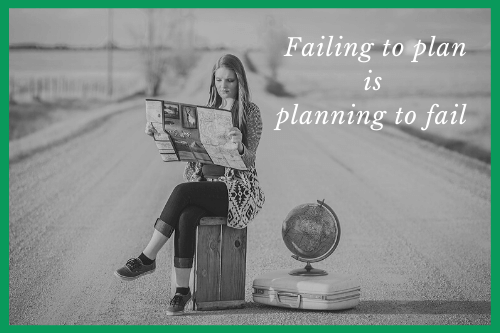
YouTube / iTunes / Spotify / Radio Public / Pocket Casts / Google Podcasts / Breaker / Overcast
Listen to ArtisanEnglish.jp posts & lesson intros here.
English Proverb: Failing to plan is planning to fail
You may think this one is pretty self-explanatory, but often it’s the common sense things that require the most explanation.
Failing to plan is planning to fail may be a quote, but if it is, I cannot discover who said it.
What I can tell you is that it’s been reported that Benjamin Franklin once said, “If you fail to plan, you are planning to fail.”
That’s pretty close, right?
For my purposes here, I’ll put it down as a proverb.
Anyway, this means that if you don’t plan out your future, you should not expect to achieve success.
Smart people have a plan.
Yes, we can bumble along in life and take advantage of situations as they arise.
However, you will notice that the people who succeed plan, and because they plan, they are in a better position to take advantage of those unplanned events.
It may seem impossible to plan for events that cannot be predicted, but that’s why we purchase insurance, isn’t it?
The phrase failing to plan is planning to fail is often used after the fact or when giving advice.
Most people don’t talk about travel insurance until after they need it.
You may feel purchasing travel insurance is an unnecessary cost because you have never needed it before.
Then, one day, before travelling to Europe, there is a massive volcanic explosion, and all flights are cancelled.
Hundreds of flights are cancelled, and thousands of people lose their money because they have no cancellation insurance.
You and I, however, have travel insurance – we are planners and expect the unexpected.
Like everyone else, we are inconvenienced, but not out of pocket.
Flesch-Kincaid Readability Test
This post is understandable by someone with at least a 7th-grade education (age 12).
On the Flesch-Kincaid reading-ease test, this post scores 70.
The higher the score on a scale of 0 – 100, the easier the passage is to read.

